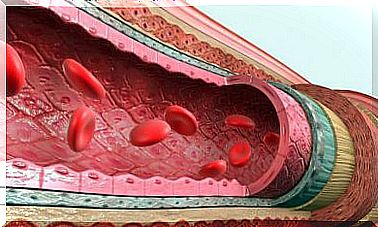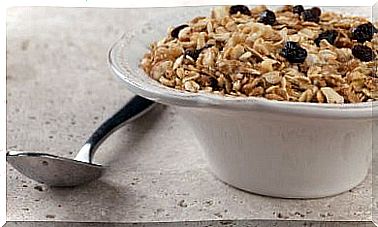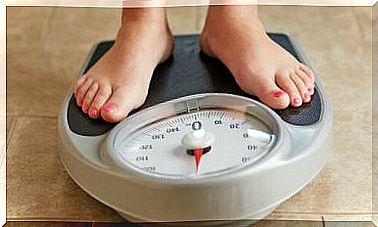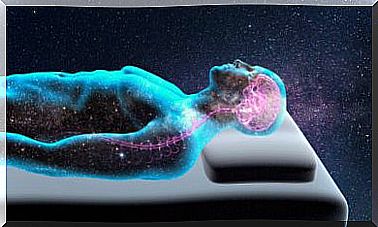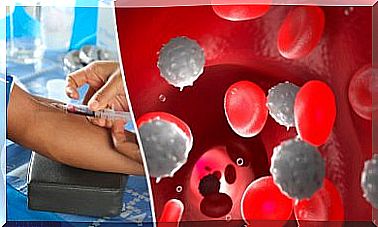4 Recommendations To Strengthen Appetite Control
To maintain appetite control it is important to know which foods can become our allies thanks to their satiating properties and avoid those that trigger cravings.

Starting new eating habits is hard work. The change can create so much anxiety that it will cause you to eat more, even though you know it should be less. In this situation, we will tell you how to strengthen appetite control.
There are also times when we have the craving to eat something at inappropriate times. We count the minutes until lunch time or we are not satisfied with the portions. It is an uncontrollable feeling that always leads us to break the diet.
Falling into this conflict can be counterproductive because health can be affected. Remember that being hungry is different from wanting to eat. While the latter is given by emotional issues, the former must be satisfied in a controlled way.
Reflect, accept and act
Faced with an urgent need to eat, it is necessary to find out the causes that produce this sensation. This process must also be accompanied by a reflection on the solution to the problem.
In the first instance, the reasons must be sought and not what satisfies hunger. Obviously, this is all part of a personal introspection. One important thing: in this scenario, negative feelings must be avoided, since they are related to low self-esteem.
Remember that when a person feels happy they are also satisfied. At this point, the individual accepts their strengths and weaknesses and achieves greater control over eating, since they will not have the need to seek satisfaction from external elements such as food.
4 recommendations for appetite control
In order for you to better regulate this situation, we bring you some tips to control your appetite that does not represent any problem. Let’s see:
1. During the day eat five meals
By eating less but more frequently we can keep blood insulin levels stable. This way you will feel energy and the desire to eat will not attack you.
Another option recommended by the current scientific literature is to propose an intermittent fasting protocol that eliminates breakfast. The hormonal adjustments that will occur first thing in the morning if you do not eat food will allow you to regulate your appetite and increase the feeling of satiety.
2. Eat three main meals and two snacks
We advise you to do it every three or four hours. The main meals should contain the four basic nutrients. In that sense, both breakfast, lunch and dinner must have:
- Fibers, such as greens, vegetables and fruits.
- Proteins, such as lean meats, chicken, eggs, fish, tofu.
- Healthy fats, including olive oil and nuts.
- Slow absorption carbohydrates , such as rice, pasta or whole grain flours, and legumes.
3. Plan balanced menus
In each meal there should be foods rich in vitamin B6, tryptophan and folic acid. These three nutrients will help us control our appetite. They help in the production of serotonin, an essential neurotransmitter that allows you to feel emotional well-being and avoid cravings resulting from negative feelings.
4. Include anti hunger foods

To increase serotonin levels and control your appetite, you must eat filling foods. Try to include in your diet: eggs, banana, nuts, meats, whole grains.
All those products rich in fiber and healthy fats will help you feel more satiated as the day progresses. A review published in the European Journal of Clinical Nutrition found that regular fiber intake was able to reduce appetite and promote better body weight control.
Nutrients to include
Some foods that you should include in your diet to promote appetite control are the following:
Liquids
Any liquid can help us feel full. You have the following options:
- At least two liters of water a day and two glasses of water before each main meal.
- Hot infusions, many of them help eliminate toxins. Some are relaxing, such as valerian, lemon balm or passionflower, and will help us control anxiety.
- Vegetable soups before meals or between meals. This way you will have a greater nutritional contribution and few calories to count. In addition, they can be frozen and preserved for a long time.
Omega-3 fatty acids
They can be found in foods such as nuts or blue fish. Also in whole grains, wheat germ, oats, brewer’s yeast. In this way, we will not feel so much anxiety and we will favor the production of serotonin.
Complex carbohydrates
They are not easily digested. Whole grains are recommended for appetite control, because they provide fiber and have a low glycemic index.
Include rice, pasta, whole wheat flour, lentils and potatoes in your diet. These foods allow more serotonin to be generated and you will feel more satisfied for longer.
Magnesium
Magnesium helps combat nervousness that leads to anxiety. You can get it in legumes, vegetables, nuts and in whole foods.
Fiber
This nutrient will make you feel more full and less cravings. On the other hand, you should avoid so-called exciting foods, as they increase adrenaline levels. In this condition, you can feel anxious and want to eat, completely losing appetite control. These foods are:
- Coffee.
- Tea.
- Chocolate in excess.
- All derivatives of refined sugar.
Optimize your diet to reduce your appetite and the urge to eat
All these tips must be accompanied by proof. You will only achieve that if you take a few minutes to get organized. With greater organization you will have more time to eat and thus you can chew calmly, without haste. Take about 25 minutes for each meal.
Controlling appetite is not a scientific question. You just have to know that eating is not a matter of trouble and it is a matter of great attention. You already know what to eat and how to do it. In the face of uncontrollable desire, keep calm and apply all the above tips.

